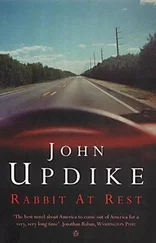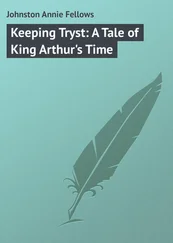Ahmad says, "Even from New Prospect, from the hill above the falls, you could see them."
"Half of New Jersey could see the damn things. A lot of the people killed in them lived in Jersey."
"I pitied them. Especially those that jumped. How terrible, to be so trapped by crushing heat that jumping to certain death is better. Think of the dizziness, looking down before you jump."
Charlie says hurriedly, as if reciting, "Those people worked in finance, furthering the interests of the American empire, the empire that sustains Israel and inflicts death every day on Palestinians and Chechnyans, Afghans and Iraqis. In war, pity has to be put on hold."
"Many were merely guards and waitresses."
"Serving the empire in their way."
"Some were Muslims."
"Ahmad, you must think of it as a war. War isn't tidy. There is collateral damage. Those Hessians George Washington woke from their sleep and shot were no doubt good German boys, sending their pay home to Mother. An empire sucks the blood of subject peoples so cleverly they don't know why they're dying, why they have no strength. The enemies around us, the children and fat people in shorts giving us their dirty little looks-have you noticed?-do not see themselves as oppressors and killers. They see themselves as innocent, absorbed in their private lives. Everyone is innocent-they are innocent, the people jumping from the towers were innocent, George W Bush is innocent, a simple reformed drunk from Texas who loves his nice wife and naughty daughters. Yet, out of all this innocence, somehow evil emerges. The Western powers steal our oil, they take our land-"
"They take our God," Ahmad says eagerly, interrupting his mentor.
Charlie stares for a second, then agrees slowly, as if this had not occurred to him. "Yes. I guess so. They take from Muslims their traditions and a sense of themselves, the pride in themselves that all men are entitled to."
This is not quite what Ahmad said, and sounds a bit false, a bit forced and far removed from the concrete living God who stands beside Ahmad as close as the sunshine warming the skin of his neck. Charlie stands opposite him with knitted thick eyebrows and his flexible mouth clenched in a sort of pained stubbornness; he has a soldier stiffness to him, a cancellation of the genial road companion habitually lodged in the side of Ahmad's vision. Seen frontally, Charlie, who neglected to shave this morning, and whose eyebrows meet above the creased bridge of his nose, fails to harmonize with the expansive loveliness of the day-the sky cloudless but for a puffy far scatter over Long Island, the ozone at the zenith so intense it seems a smooth-walled pit of blue fire, the accumulated towers of lower Manhattan a single gleaming mass, speedboats purring and sailboats tilting in the bay, the cries and conversation of the tourist crowd making a dapple of harmless sound around them. This beauty, Ahmad thinks, must mean something -a hint from Allah, a foreshadow of Paradise.
Charlie is asking him a question. "Would you fight them, then?"
Ahmad has missed what "them" refers to, but says "Yes" as if answering a roll call.
Charlie appears to repeat himself: "Would you fight with your life?"
"How do you mean?"
Charlie is insistent; his brows bear down. "Would you give your life?"
The sun leans on Ahmad's neck. "Of course," he says, trying to lighten the exchange with a flicking gesture of his right hand. "If God wills it."
The slightly false and menacing Charlie collapses, and is replaced by the good-natured motormouth, the ersatz older brother, who grins to put the exchange behind them, tucking it away. "Just what I thought," he says. "Madman, you're a good brave kid."
At times, as the summer wears on, its August bringing later sunrises and earlier dusks, Ahmad is considered competent enough, enough a trustworthy member of the Excellency team, to handle on his own, with a dolly in the truck, a day of deliveries. He and two black minimum-wagers- "the muscle," Charlie calls them-have the truck loaded by ten, and Ahmad is off with a list of addresses, a sheaf of invoices, and his set of full-color Hagstrom maps from Sussex County all the way down to Cape May. The deliveries one day include an old-fashioned item, a horsehair-stuffed leather ottoman, to a town on the Upper Shore, south of Asbury Park; it will be his longest drive of the day and his last destination. He takes the Garden State past Route 18, skirting the eastern edge of the U.S. Naval Ammunition Depot, and exits at 195 East, toward Camp Evans. By means of lesser roads, over misty low terrain, he works his truck toward the sea; the salty wild smell strengthens and there is even a sound-the precisely spaced breathing of the surf.
The Shore is a region of architectural oddities, of buildings in the shape of elephants or cookie jars, windmills and plaster lighthouses. A long-settled state, it holds in its cemeteries, Charlie has more than once boasted, tombstones cut to imitate a giant shoe or a light bulb or one man's beloved Mercedes; there are, in pine barrens and along mountain roads, a number of allegedly haunted mansions and insane asylums, which flit through Ahmad's mind as daylight gradually fades. Excellency's headlights pick out seaside cottages in tight rows, with scruffy front yards of lightly grassed sand. Motels and night spots name themselves with neon signs whose defective connections sizzle in the dusk. Ornately carpentered houses built as vacation homes for well-to-do large families with their numerous servants have been reduced to offering rooms and bed amp; breakfast and vacancy. Even in August this is not a bustling resort. Along what seems to be the main street one or two restaurants are plywooded shut, their oysters and clams and crabs and lobsters still advertised but no longer served up steaming.
From the bleached boardwalks tiiat do for sidewalks, clusters of people stare at his high square orange truck as if its appearance is an event; they look, in their medley of bathing suits and beach towels and tattered shorts and T-shirts imprinted witli hedonistic slogans and jibes, like refugees who were given no time to gather their effects before fleeing. Children among them wear towering hats of plastic foam, and those who might be their grandparents, having forsaken all thought of dignity, make themselves ridiculous in clinging outfits of many colors and patterns. Sunburned and overfed, some sport in complacent self-mockery the same foam carnival hats as tJieir grandchildren wear, tall and striped ones as in die books by Dr. Seuss or headgear shaped like open-mouthed sharks or lobsters extending a giant red mitt of a claw. Devils. The guts of the men sag hugely and the monstrous buttocks of die women seesaw painfully as tiiey tread the boardwalk in swollen running shoes. A few steps from death, these American elders defy decorum and dress as toddlers.
Searching for the address on die last invoice of the day, Ahmad steers the truck dirough a grid of streets back from the beach. There are no curbs or sidewalks. The macadam's edges crumble into patches of sunbaked grass. The houses are shingled and small and close togetiier, widi an air of minimum upkeep and seasonal rental; about half of them display signs of life within-lights, a flickering television screen. Children's bright beach toys litter some yards; surfboards and inflatable Nessies and SpongeBobs wait on screened porches for die next day's oceanic romp.
Number 292, Wilson Way. The cottage shows no exterior signs of habitation, and the front windows are masked by drawn Venetian blinds, so Ahmad is startled when the front door pops open seconds after he presses die chiming doorbell. A tall man with a narrow head made to seem narrower still by his close-set eyes and tight-cropped black hair stands behind die screen door. Unlike die crowds near the beach, he is dressed in sun-repellent clotiies, in gray trousers and a long-sleeved shirt the indeterminate color of an oil stain, buttoned at his wrists and throat. His stare is not friendly. There is a wiry tension to his whole body; his stomach is admirably flat.
Читать дальше












